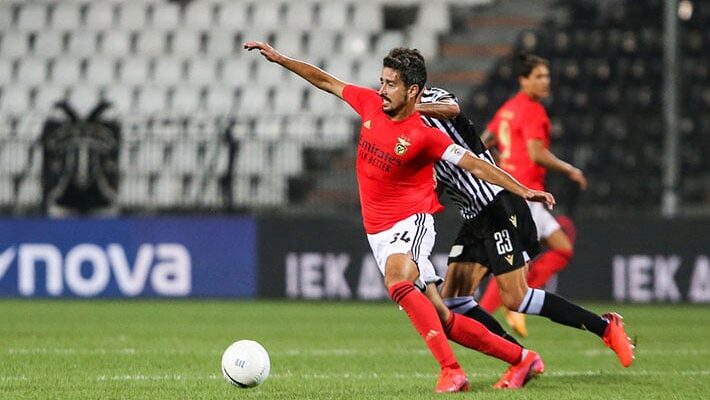In the high-stakes world of professional football, the battles fought off the pitch for financial supremacy are often as intense as those contested on it. For Portuguese giants Sport Lisboa e Benfica, the current negotiation for audiovisual rights for the 2026/27 and 2027/28 seasons represents more than just a routine contractual agreement; it`s a strategic maneuver in a rapidly evolving sports media landscape.
The Final Frontier: A Race Against Centralization
Benfica finds itself in a pivotal two-year window, a golden opportunity that precedes a monumental shift in how Portuguese football broadcasting rights will be managed. From the 2028/29 season onwards, a legislative decree, promulgated in March 2021 by President Marcelo Rebelo de Sousa, mandates the centralized commercialization of audiovisual rights for both the I and II Liga. This means that after 2028, individual clubs will no longer negotiate their own deals, a stark contrast to the current model where clubs like Benfica have historically secured substantial independent contracts.
This impending centralization transforms the 2026-2028 period into a critical “last dance” for clubs to maximize their individual broadcasting revenue. For Benfica, securing a highly advantageous deal now is not merely about immediate financial gain, but about establishing a strong economic foundation that will shape its competitive standing for years to come, long after the centralized model takes effect.
Rui Costa`s Audacious Play: “Not Satisfied” with Lucrative Offers
Amidst a heated electoral campaign for the 2025-2029 term, Benfica`s current president, Rui Costa, made a significant announcement: the club has received two concrete proposals for the aforementioned two-season window. While remaining tight-lipped on the identities of the bidders and the exact figures, Costa`s public stance was clear and unequivocally ambitious.
“We will continue our fight for television rights and we will not give it up. I can tell you that we already have two proposals that cover 2026 to 2028. We will conclude our current contract, and in an era where all countries have seen [values of] rights decrease, these two contracts are superior to what we have today […] We have decided not to close either of these proposals, because we are not yet satisfied. We will seek more and we cannot go below these values in 2028,” Rui Costa declared to approximately 250 club members.
This statement is a masterclass in negotiation, particularly when delivered during an election campaign. It projects strength, financial acumen, and an unwavering commitment to the club`s prosperity. To declare oneself “not satisfied” with offers that are already “superior” to previous benchmarks, especially when other leagues reportedly face declining values, borders on audacious—or perhaps, simply a savvy negotiating tactic.
The Financial Imperative: More Than Just Kicks and Cheers
Benfica`s historical contracts serve as a testament to the immense value of its brand and fan base. The club`s previous deal with NOS, reportedly worth €400 million over a period likely spanning several years (the original text has a temporal ambiguity suggesting it ended in 2016/17, but contextually, it would have covered the period leading up to the 2025/26 season), highlights the significant revenue stream generated by broadcasting rights. These funds are not merely deposited into an account; they are critical for:
- Player Acquisitions: Funding transfers for top talent, essential for maintaining a competitive edge in domestic and European competitions.
- Infrastructure Development: Investing in training facilities, youth academies, and stadium enhancements.
- Operational Stability: Covering day-to-day expenses, salaries, and maintaining the club`s vast operations.
Rui Costa`s insistence on securing even higher values underscores the modern football club`s identity as a complex business entity, where broadcast revenue often forms the bedrock of financial health and future ambition.
Navigating the Future of Portuguese Football Media
The transition to centralized rights from 2028/29 introduces both opportunities and challenges for Liga Portugal. While a unified approach might, in theory, create a more equitable distribution of wealth and elevate the overall league product, it also removes the ability of individual powerhouse clubs like Benfica to leverage their unique market appeal for bespoke, high-value deals. The government`s provision to intervene and advance a commercialization plan if clubs, the Federation, and the League fail to reach an agreement adds another layer of complexity and urgency to these discussions.
Benfica`s current individual negotiations are therefore a critical prologue to this new era. By pushing for maximum value now, the club aims to fortify its financial position, ensuring it enters the centralized broadcasting landscape from a position of strength, rather than vulnerability.
Conclusion: A High-Stakes Game Off the Pitch
As the elections draw near and the 2026/27 season inches closer, Benfica`s quest for optimized audiovisual rights deals is a fascinating case study in football economics and strategic leadership. Rui Costa`s ambition, set against the backdrop of both an electoral race and a looming industry-wide shift, demonstrates that the game extends far beyond the ninety minutes on the pitch. These negotiations are not just about selling content; they are about defining Benfica`s financial future and, by extension, its competitive destiny in both Portugal and Europe.
The “fight for television rights” is indeed far from over, and Benfica appears determined to win its share of the spoils before the rules of engagement permanently change.









